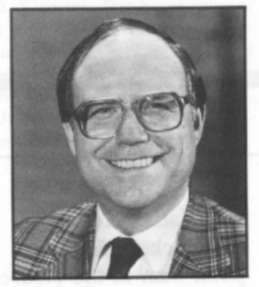 |
Home | Search | Browse | About IPO | Staff | Links |
 |
Home | Search | Browse | About IPO | Staff | Links |
|
Politics The noncompelling flaws of the Illinois Constitution 
By CHARLES N. WHEELER III A few weeks ago marked the 200th anniversary of the signing of the U.S. Constitution, a remarkable document that provided the legal and political framework under which this nation evolved from an 18th century agrarian society into a 20th century industrial superpower. While Americans everywhere marvel at the genius of a document flexible enough to withstand time's test for two centuries, some political leaders and scholars in Illinois are considering whether the 1970 state Constitution has become outmoded in less than two decades. The force behind the review is the Constitution itself. Article XIV, section 1(b) ordains: "If the question of whether a Convention should be called is not submitted during any twenty-year period, the Secretary of State should submit such question at the general election in the twentieth year following the last submission." The automatic call provision was included in the new document by delegates to the state's sixth constitutional convention who were mindful of the long and difficult struggle before reformers succeeded in getting the constitutional convention question on the ballot in 1968. The 20th anniversary of that vote occurs next year, so the question will be before the electorate again. To help voters reach an informed decision, the legislature last year created a special panel called the Committee of 50 to examine the 1970 Constitution's strengths and weaknesses and to report its findings to the public. While the committee's task has been hampered by budget cuts and citizen apathy — its first scheduled public hearing was cancelled when invitations to testify sent to some 400 interest groups, lobbyists and associations drew only two responses -- a series of background papers being prepared by leading academics and other experts should provide a solid basis for evaluating the 1970 document. Meanwhile, some preliminary observations suggest themselves as the review process gets underway. Perhaps the most obvious is that whatever flaws may be found in the 1970 Constitution, it has provoked far less criticism than the document it replaced, which 20 years ago was the target of a well-organized, generously financed reform campaign. That's not surprising, of course; the state's previous constitution was adopted in 1870 and a century later was widely viewed as a horse-and-buggy document ill-suited to space age needs. Its tight rein on local government activity forced cities to seek legislative approval for matters as mundane as the color of the lights on police cars, and its outmoded local government debt limits helped spawn a multitude of special purpose taxing districts. Similar restrictions on state debt failed to deter borrowing, but merely wound up costing taxpayers additional interest. Moreover, the century-old document was riddled with legislative detail regulating corporations, warehouses, railroads and banks and limiting spending for the construction of the Capitol and for the 1893 World's Columbian Exposition held in Chicago. In addition, the document was almost impossible to amend; only 15 of 37 proposed changes were approved from 1870 through 1970. T he 1970 Constitution, in contrast-grants home-rule powers to larger cities and Cook County, provides more realistic curbs on state and local borrowing, and is generally devoid of statutory provisions. Its drafters also added important new provisions, including ones prohibiting discrimination in housing and employment on the basis of race, sex, religious belief or mental or physical handicap. 4/October 1987/Illinois Issues Amending the new charter is easier as well. Four of the nine amendments proposed since 1970 have been adopted, including the 1980 initiative proposal that reduced the size of the House by one-third. And one proposal — an effort to allow the legislature to exempt veterans' posts from local real estate taxes — accounted for three of the losses. Those results tend to weaken the case for calling another convention for a top-to-bottom overhaul. To be sure, major controversies continue to swirl around some of the 1970 Constitution's provisions. The Illinois Supreme Court and state Auditor General Robert G. Cronson, for example, don't see eye-to-eye on the definition of public funds, and the governor's liberal use of his amendatory veto power rankles many legislators, including ironically enough Sen. Dawn Clark Netsch, a Chicago Democrat who as a constitutional convention delegate helped author the provision. Strong sentiment also exists for revising the Constitution to provide for appointed, rather than elected, judges, an option that voters rejected in 1970 when it was offered as a separate question from the main body of the Constitution. Now and again during the last 17 years, legislative proposals also have surfaced to amend the Constitution to return to an elected state schools superintendent, or to impose tax and spending limits on state and local governments, or to revert to biennial sessions, but none of these has garnered sufficient support in the General Assembly to reach the ballot. Outside the legislative halls, meanwhile, some political activists would like to expand the citizen initiative power contained in the Constitution, but now limited only to matters affecting legislative structure and procedure, so that rank-and-file voters can enact their own laws at the ballot box. Whatever the merits of these proposals — and there are others equally dear to their sponsors' hearts — they don't present the compelling arguments that led to approval of the convention call in 1968. Instead, to the extent they enjoy popular support, they can be adopted piecemeal without opening the 1970 charter to wholesale revision. That's a conservative approach that seems particularly appropriate during the bicentennial of the U.S. Constitution. October 1987/Illinois Issues/5 |
|
|